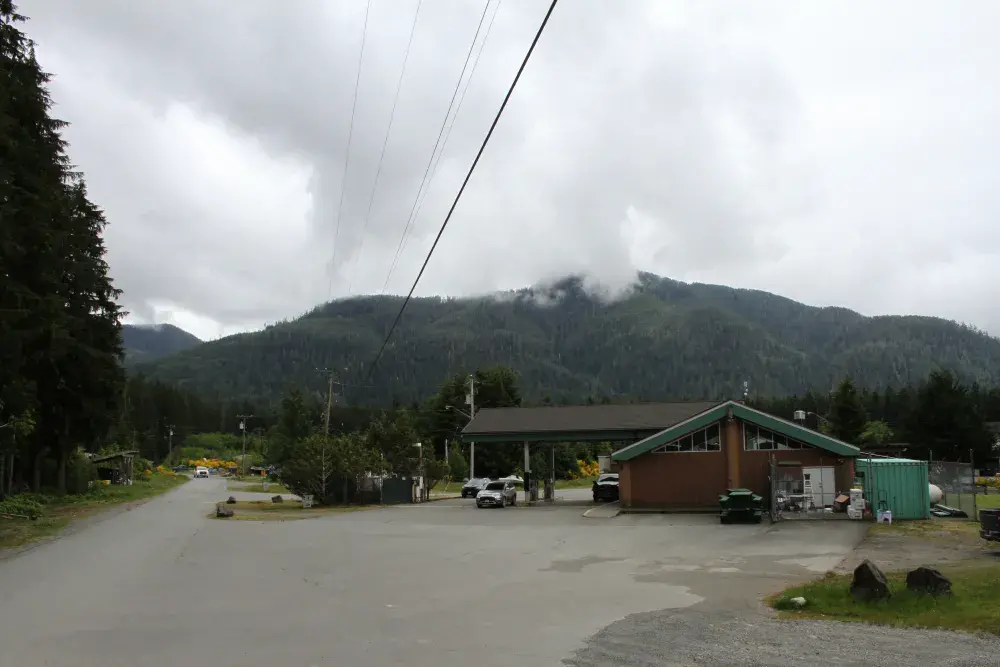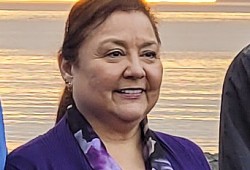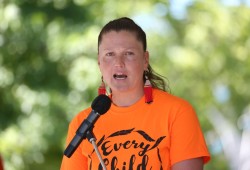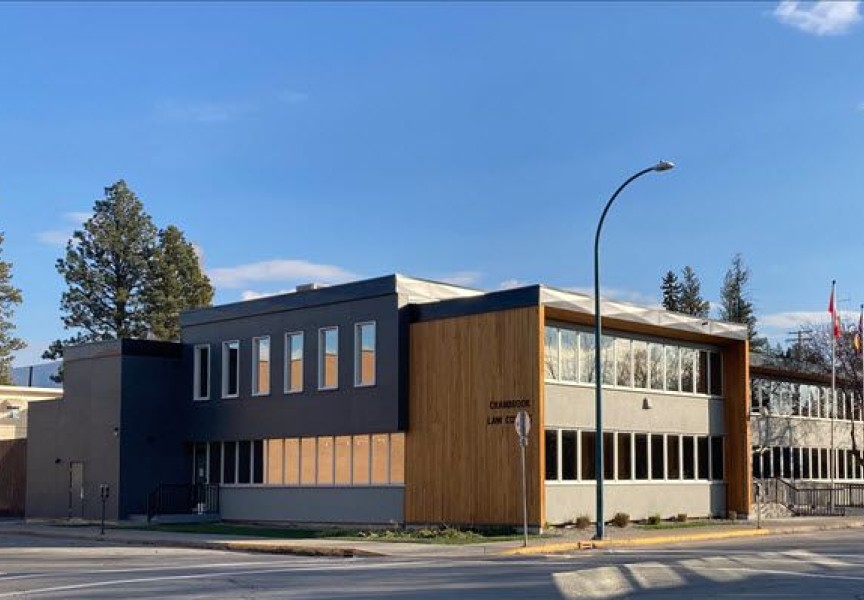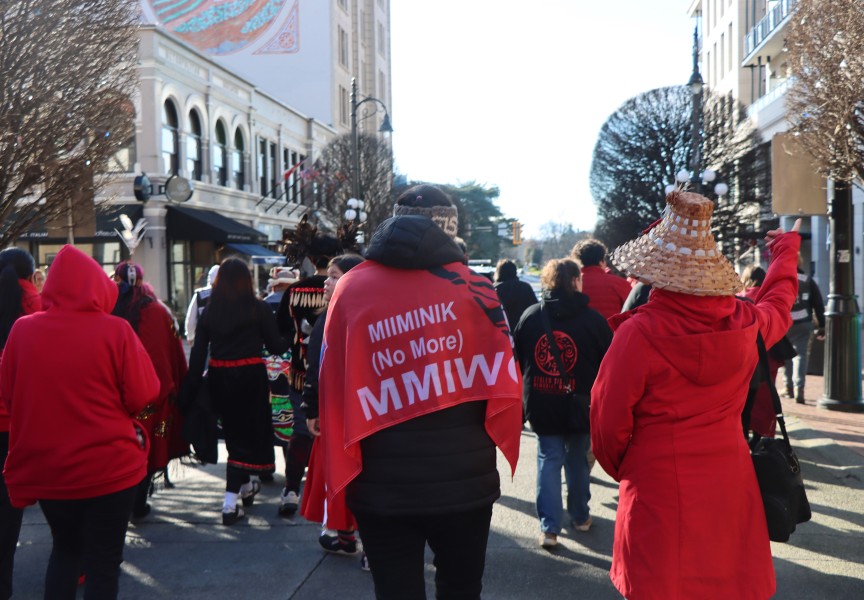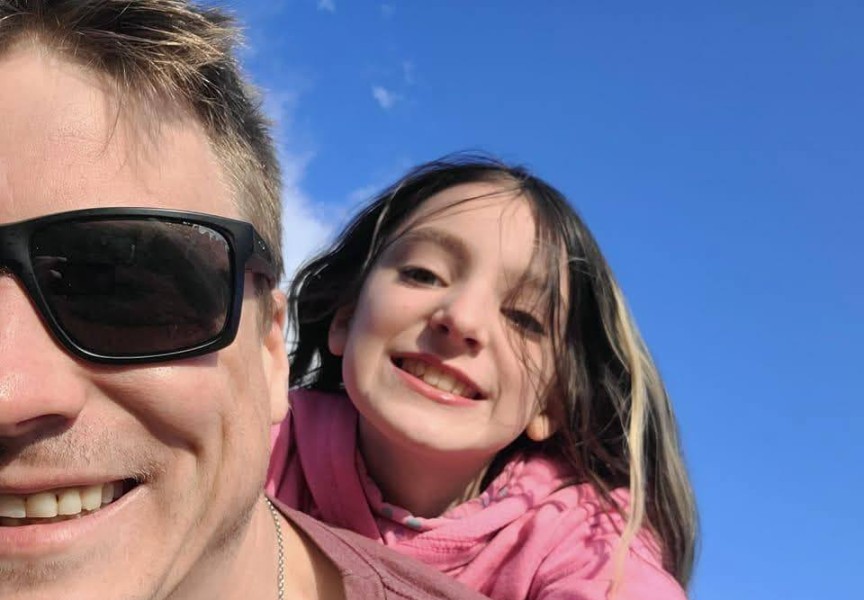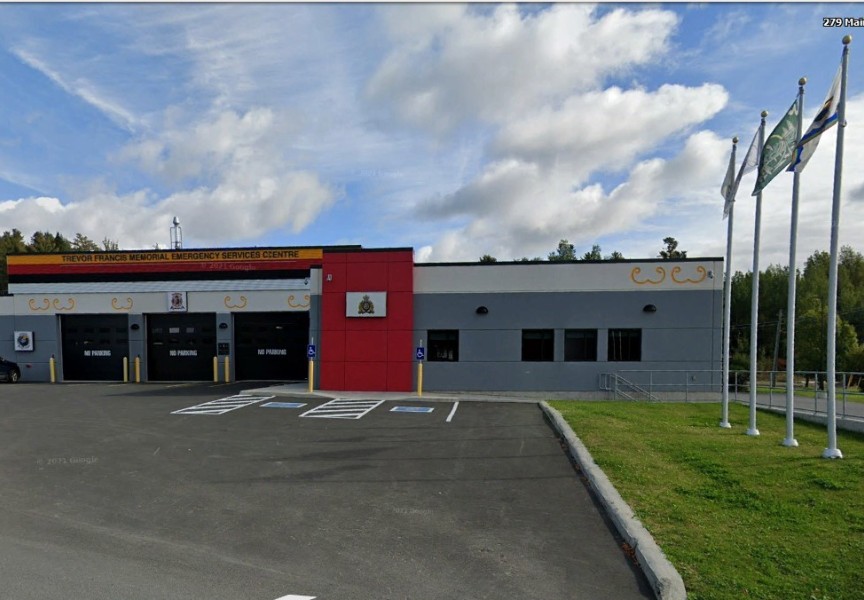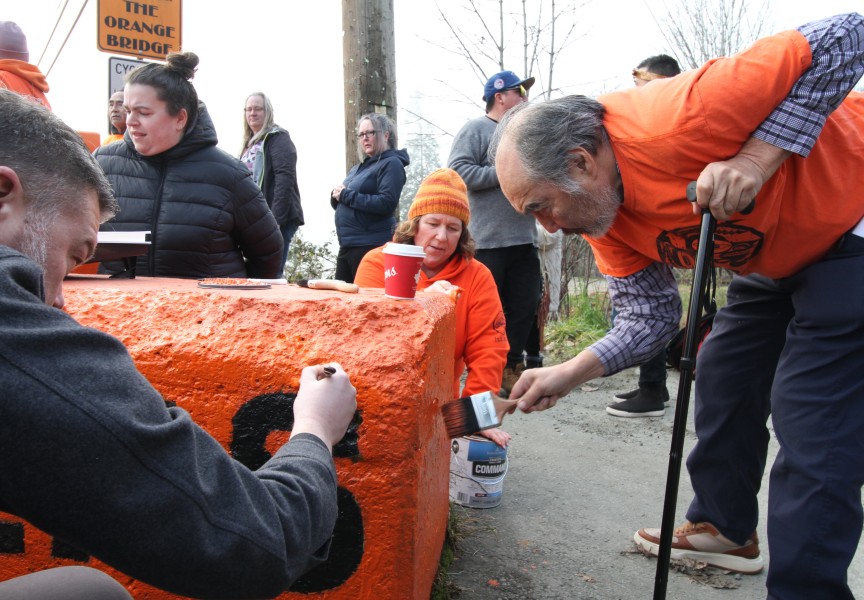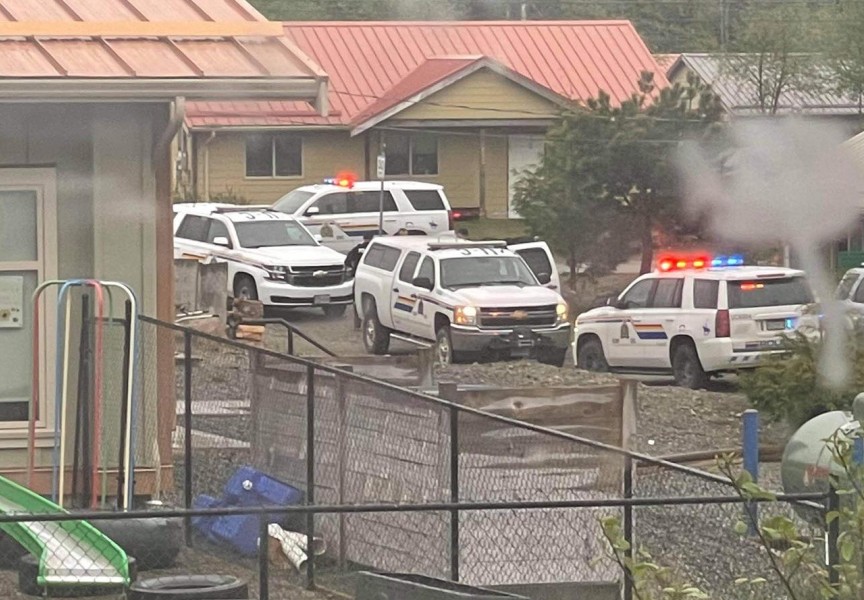Tragedy rocked the small village of Nitinaht on Saturday, Sept. 28, with an incident that suddenly brought a heavy police presence to the Ditidaht First Nation community on southwest Vancouver Island.
The early morning incident left one young man dead, while another individual was arrested after multiple RCMP units descended on the village by Nitinaht Lake. On the following day police made a charge of first-degree murder against the individual, who is scheduled to appear in court Oct. 8.
In a statement from the Lake Cowichan RCMP, officers from the detachment were called to a home in the Ditidaht First Nation village just before 7 a.m. on Sept. 28.
“Upon arrival, police located an adult man who was deceased,” said Corp. Madonna Saunderson in an RCMP press release.
Other units were called for assistance, including the RCMP’s Emergency Response Team. This is a group that uses “tactics, specialized weapons and equipment to resolve high-risk situations,” according to the RCMP.
Meanwhile, Nitinaht residents were told to stay inside and keep their windows closed as the converging police units dealt with the situation.
“A short time later, with the assistance of ERT, a suspect, adult man was arrested without further incident,” stated the RCMP release.
As police remained in the community conducting their investigation, the village grappled with the aftermath of sudden tragedy. A dinner was held in Nitinaht on Saturday evening for those who wished to come together. Less than 200 people live in the remote community, which is located west of Lake Cowichan.
“The families of those involved are asking for gentleness and kindness as we seek the truth, together as one,” wrote Ditidaht Chief Councillor Judi Thomas in a notice issued to members on Sept. 28. “Out of respect for the families and loved ones, no names will be released at this time.”
Several organizations and individuals have been called to the on-reserve community for spiritual and mental health support. These include staff from the First Nations Health Authority, Tsow-tun-le-lum in Duncan, workers from the Nuu-chah-nulth Tribal Council’s health and cultural support departments, Counsellor Donna Brown, Uustukyuu and spiritual support from Margaret Eaton.
“If there are additional services you may require during this difficult time, please contact Norine Messer, deputy administrator, at 250-735-4111,” wrote Thomas in her message. “We encourage everyone to be with one another for support during this time.”
Two days after the tragedy, a statement came from the Hesquiaht First Nation on Sept. 30, Canada’s National Day for Truth and Reconciliation, noting the “tragic and sudden loss of a valued and loved Hesquiaht member.”
“The legacy of this fine young man will live on,” continued the statement. “We stand with the family every step of the way.”
“Today and the days ahead will be tough for many,” said Hesquiaht Chief Councillor Mariah Charleson in the press release. “My love is with all who are grieving the loss of a fine young man who was taken away far too soon. Please walk gently and take good care of one another. Stand together as one.”
The last month has been traumatising for many within Nuu-chah-nulth territory, as another murder charge was made within a month of the incident in Nitinaht. On Aug. 31 a tragic stabbing incident in Ahousaht brought a second-degree murder charge against another individual.
Many affected by the tragedy in Ahousaht attended a press conference held by the Nuu-chah-nulth Tribal Council on Sept. 19, which declared a state of emergency due to the ongoing toxic drug and mental health crisis.
With a provincial election quickly approaching on Oct. 19, Charleson stressed that more support is urgently needed.
“Today needs to be more than talk, we demand to see action,” she said in the Hesquiaht release. “We call upon Canada and B.C. to make a commitment to putting meaningful investment, including an action plan and adequate resources to end systemic and overt racism, create a First Nation-specific strategy to address the opioid crisis and harms of alcohol, create a First Nations-specific strategy to address the mental health crisis, implement the TRC 94 calls to action, implement the 231 MMIWG imperative calls to justice, and make a commitment to ensure our people can live respectfully and safely right here where we have been since time immemorial.”

